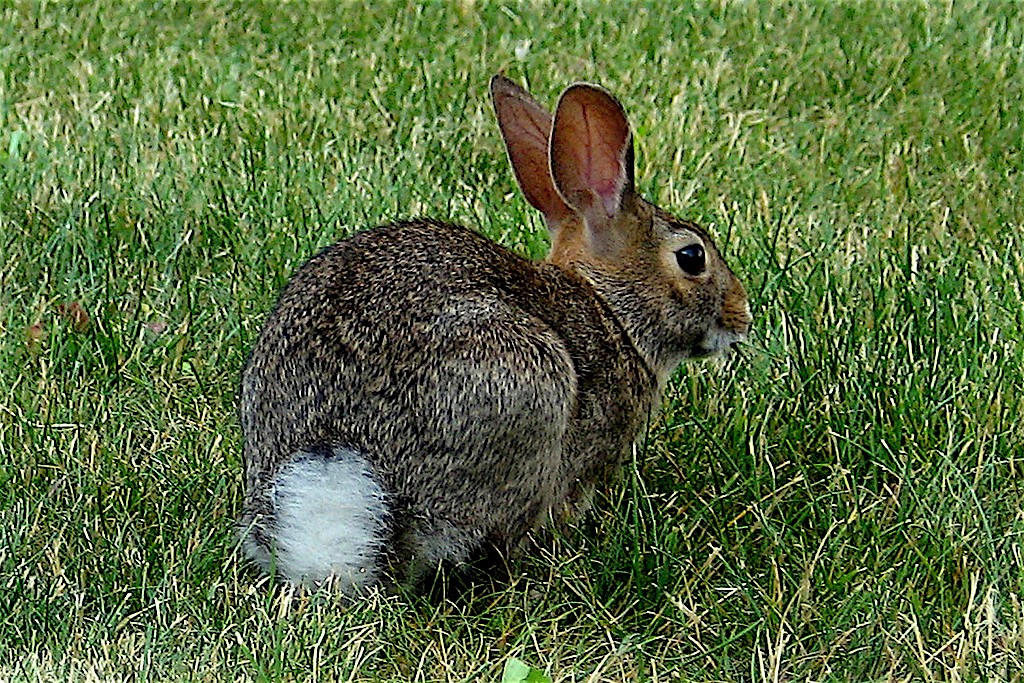
We all want to feel safe in our own home. Help your rabbits feel safe in their home But this means when there’s hot temperatures it can make your bunnies’ home too warm. Covers not only provide a bit of privacy, they also protect your rabbits from the wind, rain, and cold in the cooler months. at night, and be careful not to use it in particularly warm weather. If you do decide to use a cover, this should only be for short periods of time e.g. This can help to mask the smell and hide your rabbits away. You can use tarpaulin or a specially made cover to give a bit more protection between your rabbits and other animals.

If you’re particularly concerned about your rabbits’ safety and have spotted some pesky predators in your area, you could get a cover for your rabbits’ enclosure. Give your rabbits some cover… and privacy You can buy special dig boxes, such as this clear dig box, or fill a litter tray with soil. Give your rabbits something safe to dig by providing a dig box. Put the soil and turf back on top and you’ve created a fully walled rabbit enclosure. For extra security, dig up the area your run takes up and place a sheet of wire into the ground. To help prevent this, dig down into the perimeter of your rabbits’ housing and bury extra wire, to create an underground perimeter. However, it does mean that they may end up digging their way out of their exercise area if it’s on grass. It’s a natural behaviour and should be encouraged. Stop your rabbits digging their way out – or something digging in For extra security, create a double wall of wire, by also attaching it to the outside too. Often pre-made runs will have the wire welded onto them, but if you’re doing it yourself, use high quality staples and cable ties to secure it to the frame with no gaps. Where is your wire secured on your rabbits’ housing?įor extra security, make sure you attach the wire to the inside of your rabbits’ hutch or permanently attached run. If you are concerned about smaller predators, like stoats or weasels, consider using a 13mm wire. Instead a 16g or 12g wire with 25mm holes is sufficient to keep foxes and rats out of your rabbits’ home. Chicken wire is not suitable for rabbit housing as it’s just too thin. If your rabbits’ housing uses wire, it’s vital to make sure it’s strong enough to protect against predators. These will help prevent clever foxes or wiry weasels from getting in through the front door. Good quality bolts and locks are easy to find online or in hardware stores. Use secure locks and boltsĪny openings to your rabbits’ hutch and permanently attached exercise area should be totally secure. Predators could take advantage of any weak spots in your rabbits’ housing, so keeping on top of it is key. If you spot any damage or breaks, it’s important to get these fixed as soon as you can.
#Wild rabbit predators free#
If you use metal components, are they free from rust or damage?.When you complete your daily spot clean of your rabbits’ housing have a quick look around and ask yourself:

Make sure their housing is structurally sound Take a look at our tips to predator proof your rabbits’ outdoor housing. Therefore, as owners we need to keep our pet rabbits safe when we keep them outdoors. Unfortunately all of these animals can and will access back gardens. They’ll also thump their feet to let other rabbits nearby know that there is danger around. When they sense danger rabbits will quickly run and hide away in their burrows or tunnel down into undergrowth for protection. In the wild, rabbits are always on high alert. In the wild, rabbits’ natural predators include foxes, birds of prey, weasels, and stoats. This means they are hunted by other larger animals for food.


 0 kommentar(er)
0 kommentar(er)
